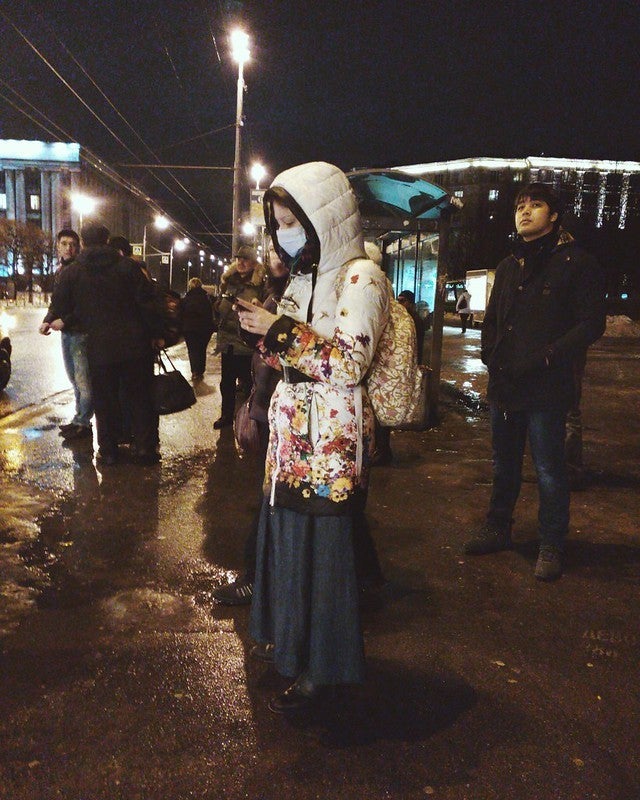Among its many other impacts, the coronavirus pandemic (COVID-19) puts at risk the improvements that many countries have been making on statistical capacity, which is key to measuring their development progress. The World Bank’s 87 active projects through the Trust Fund for Statistical Capacity Building (TFSCB) are directly affected, as we work in countries to provide hands-on support. However, resourcefulness and innovative thinking, as history has often demonstrated, can yield resilience and positive results. Project teams that manage grants from the TFSCB are adapting quickly, thinking outside the box and designing new strategies. This is not only to continue their operations, but also to ensure crucial access to trusted, quality data that decision makers need to combat the pandemic.
 Extensive lockdowns and stay at home orders remain in many countries worldwide, with strict policies permitting mobility only for the acquisition of groceries, and for those in charge of providing priority services, such as medical and utility services. These orders have impacted projects’ work and planned travel for training workshops, household surveys, and other events. Many projects have responded by providing distance learning through remote communication methods and moving most of their activities online, with all the interviews conducted by phone. An example of this resilience at work is the Caribbean Energy Statistics Capacity Enhancement Project, which has quickly adapted to continue offering activities like virtual trainings and workshops. To this end, additional material is being developed to fulfill the original objectives of the project, such as tutorials, follow-up material, guided exercises, detailed documents for case scenarios of administration of the system, and digital surveys.
Extensive lockdowns and stay at home orders remain in many countries worldwide, with strict policies permitting mobility only for the acquisition of groceries, and for those in charge of providing priority services, such as medical and utility services. These orders have impacted projects’ work and planned travel for training workshops, household surveys, and other events. Many projects have responded by providing distance learning through remote communication methods and moving most of their activities online, with all the interviews conducted by phone. An example of this resilience at work is the Caribbean Energy Statistics Capacity Enhancement Project, which has quickly adapted to continue offering activities like virtual trainings and workshops. To this end, additional material is being developed to fulfill the original objectives of the project, such as tutorials, follow-up material, guided exercises, detailed documents for case scenarios of administration of the system, and digital surveys.
In the Central African Republic (CAR), the TFSCB supports the “Data for Decision Making” project, specifically on updating an obsolete consumer price index—critical for monitoring inflation—and improving digital connectivity and public access to data. Although the pandemic has disrupted the normal implementation of these activities, the project is continuing to provide technical assistance through virtual meetings and telephone calls so that these activities can be completed. Furthermore, the TFSCB is now supporting the monitoring of COVID-19 impacts in CAR, including the production of weekly bulletins to monitor prices increases of food and other basic necessities stemming from COVID-19 containment measures (e.g. partial border closures and supply chain disruptions) and a high-frequency telephone survey to monitor the impacts of COVID-19 on households.
In Paraguay, the implementation of the project “Improving Administrative Records for better Sustainable Development Goals (SDGs) evidence-based policymaking” has been delayed due to the impact of the COVID-19 pandemic on the regular activities of the Ministry of Education and Science (MEC) and Ministry of Health and Wellbeing (MSPBS) of Paraguay, the direct beneficiary institutions of the project. The travel related savings from the virtual delivery of activities will allow the project to include COVID-19 response actions in Paraguay, such as the analysis of the impact on GDP of COVID-19 related social distancing measures by economic sector, estimates of the COVID-19 treatment unit cost, elaboration of epidemiological prediction models on the number of persons infected by COVID-19, and the statistical meta-analysis on the effectiveness of experimental treatments against COVID-19. These activities will be conducted by the project’s consultants from their usual quarantine locations with digital interactions with Paraguayan civil servants using free-access platforms.

Some of the survey-based projects have also dedicated part of their funds to the fight against COVID-19. The Mongolia Nomadic Household Pilot Survey, part of the Inclusive Data and Statistics project, will be conducting a mobile phone survey that will nowcast the household welfare impact of COVID-19 in the country. In Iraq, a similar High-frequency Phone Survey for Households and Firms will be implemented as part of the TFSCB funded project to assess household impacts (loss of income, higher food prices) and firm impacts (loss of revenues, letting go of employees) in the country due to the COVID-19 pandemic. The Senegal-Guinea Bissau project on Capacity Building for Poverty Monitoring will incorporate the production of monthly surveys and reports on the COVID-19 impact on household living conditions and welfare. Lebanon’s Agriculture Statistics and Policy Support project will implement an express agriculture input price monitoring system – to monitor impact of the financial crisis and COVID-19 pandemic on the agriculture sector. All surveys will be implemented in close collaboration with country authorities and interviews will be conducted by phone.
Another team that will add COVID-19 related activities to their workplan is the task team of the Honduras project on Data Literacy and Capacity Development for Data Use, which will reallocate resources from travel and event logistics to support the enhancement of the Transparency Portal of the Institute of Access to information (IAIP), the Open Contracting and the Open Data platforms to include data on COVID-19 budgets and expense. The transparency and open data portals can be used to monitor how the government procures goods, works, and services to attend to the health and social protection crisis generated by COVID-19. Transparency in the use of these resources is of the utmost priority for government in the current situation, to build trust in citizens over its management of the crisis.
Access to timely and accurate data is crucial for decision makers to save lives in a time of crisis. In the words of Tedros Adhanom Ghebreyesus, director-general of the World Health Organization: “You cannot fight a fire blindfolded.” Data allows us to see the problem clearly and find a comprehensive, sustainable solution. While the ultimate effects and subsequent recovery period from the COVID-19 pandemic remain unknown, vigilance and adaptability are once again proving to be crucial to remain resilient as we get through this together.
The Trust Fund for Statistical Capacity Building (TFSCB) is supported by the United Kingdom’s Department for International Development, the Government of Korea, and the Department of Foreign Affairs and Trade of Ireland.
For more information about TFSCB’s rapid support to help countries respond to the COVID-19 outbreak, including the announcement of the winners of the extraordinary COVID-19 call for proposals, please visit our website.



Join the Conversation